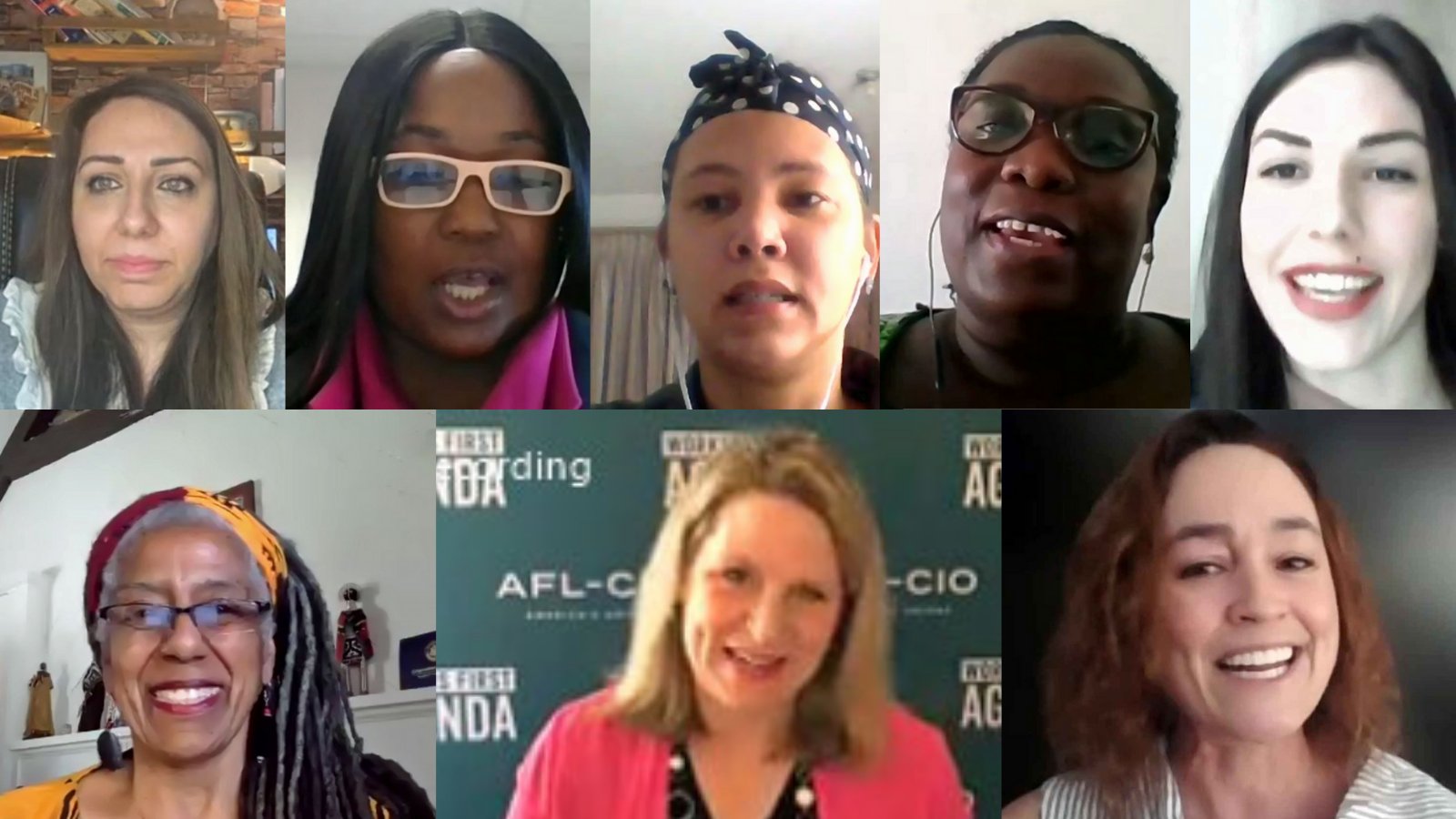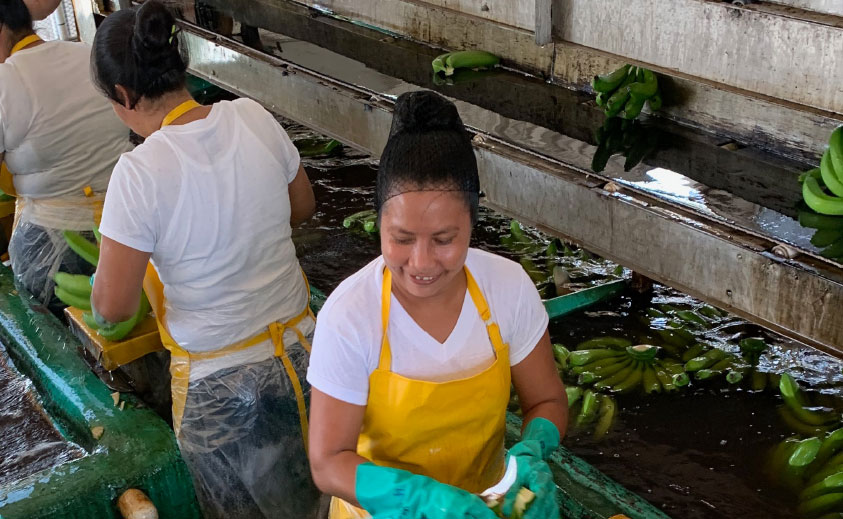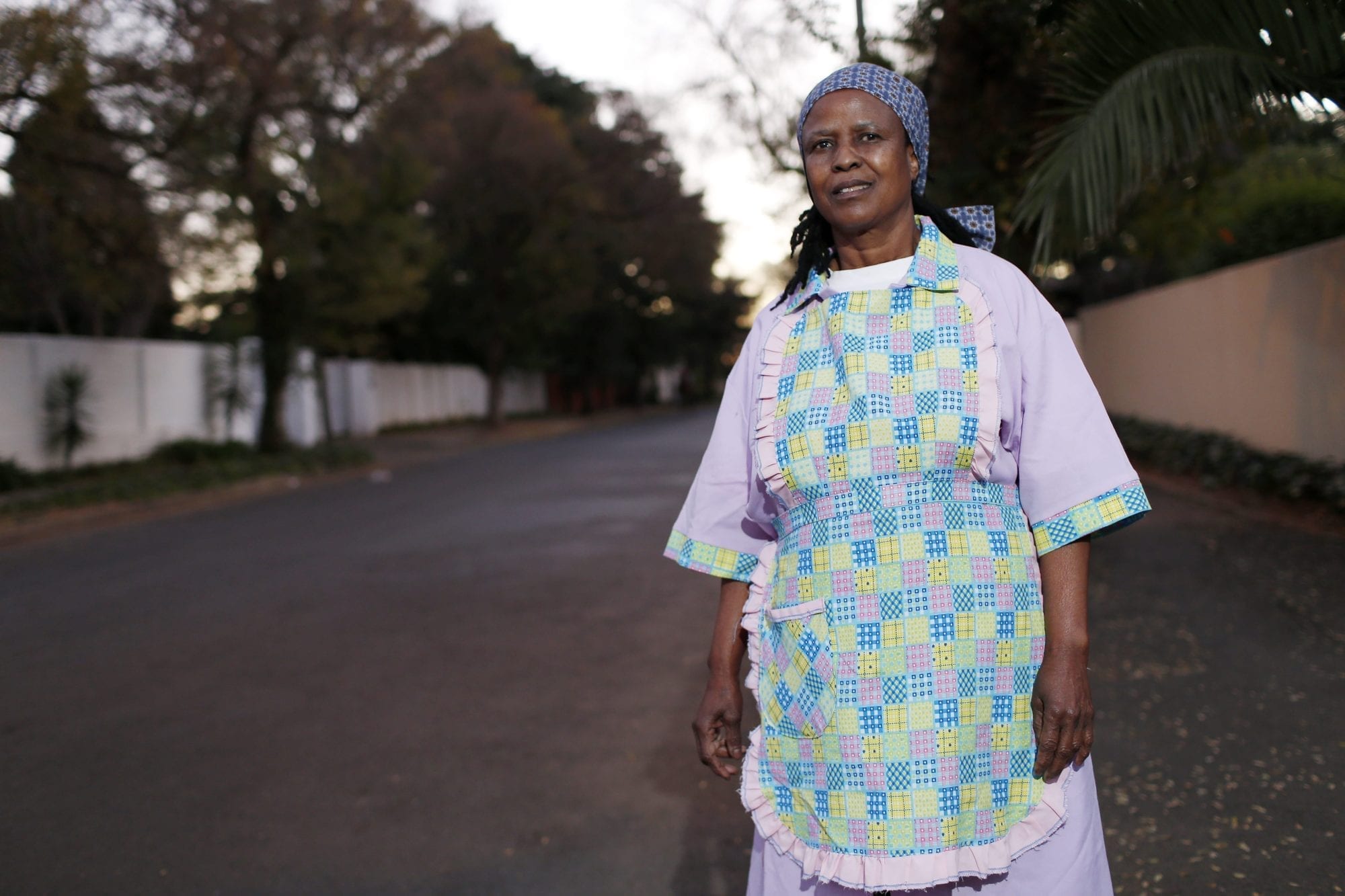Women are undervalued, underpaid and the target of disparaging stereotypes and even violence—but by joining together in unions, they stand strong with a collective voice to change the workplace, society and government, women union leaders said today in a panel event....
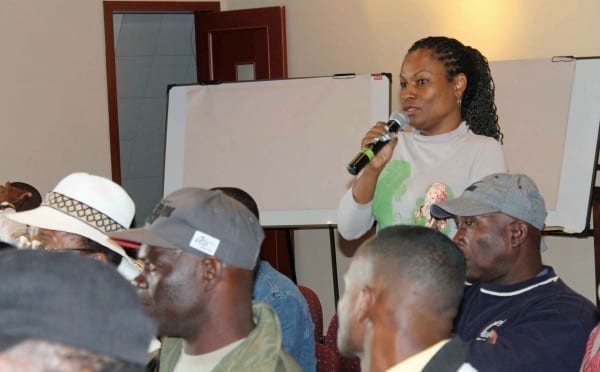
The Solidarity Center supported the development of the Afro-Colombian Labor Council, the first national organization in Colombia dedicated to improving the working conditions of Afro-descendants. Credit: Solidarity Center/Rhett Doumitt
The Solidarity Center engages with unions and their allies through an analysis and practice of equality, radical inclusion and intersectionality that is explicitly feminist, anti-racist, pro-equality, pro-worker, pro-migrant and class conscious.
The Solidarity Center designs and implements strategies to confront the multiple and intersecting forms of oppression that contribute to economic structures in which women and other groups of workers are devalued and excluded from economic and social equality. This requires a conscious effort to examine how oppressive forces play out throughout the global labor movement with a commitment to dismantle these systems. Explicit in this work is the understanding that the agency and leadership of the most marginalized workers are key components of decent work and economic justice for all.
The Solidarity Center has assisted unions and their allies in countries such as Cambodia, Colombia, Georgia, Honduras, Indonesia, Kyrgyzstan, Morocco, Nigeria, Nicaragua, South Africa and Tunisia to ensure meaningful participation of historically excluded and marginalized workers in unions and other democratic structures.
See related factsheets, videos and reports.
In Morocco, the Solidarity Center supported a multi-year effort to build women worker power and gender equality which led to the inclusion of women workers during negotiations for the first collective bargaining agreement in the informal agriculture sector. In Colombia, the Solidarity Center supported the development of the first national organization dedicated to improving the working conditions of Afro-Colombians.
In Kyrgyzstan, Morocco and Tunisia, Solidarity Center is assisting in strengthening union efforts to promote inclusion of individuals with disabilities. In Nicaragua, Solidarity Center supports domestic workers as they address inclusion of LGBTQI union members to ensure they can represent themselves, articulate their priorities and increase their leadership opportunities and visibility.
The Solidarity Center:
- Conducts research and awareness-raising to challenge systems of oppression and inform inclusive approaches to building worker power across social identities at all levels
- Supports representative, inclusive leadership in our partner organizations
- Engages in cross-movement work to combat tools of oppression that impact women, including gender-based violence and harassment at work
- Brings together unions and community groups to identify shared socioeconomic struggles, analyzes how those struggles are linked to systemic racism and implements organizing, legal and advocacy strategies to collectively overcome the oppression that entraps workers in poverty
- Advocates for economic policies that uproot systemic discrimination and exploitation in labor markets.
The Union Difference in Guatemala Banana Plantations
Unionized workers on Guatemala banana plantations earn more, work fewer hours, face less sexual harassment, and have safer workplaces, including during the Covid-19 pandemic, according to a Solidarity Center report. (The report also is available in Spanish.) “What...
Health and Safety: South African Domestic Workers No Longer Invisible
In an historic judgment, the South African Constitutional Court in mid-November recognized that injury and illness arising from work as a domestic worker in a private home is no different to that occurring in other workplaces and equally deserving of compensation....
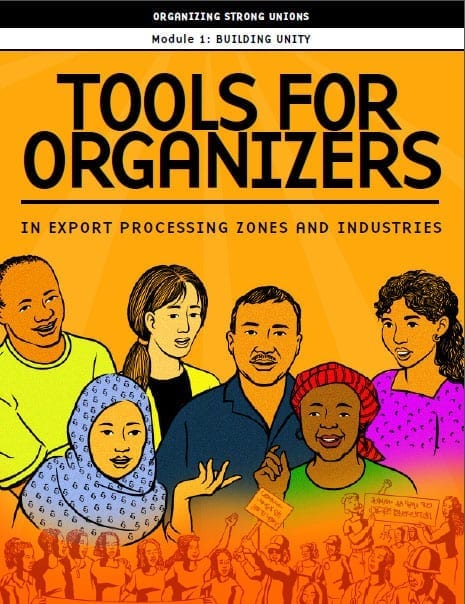
Tools for Organizers in Export Processing Zones and Industries
Building worker power is fundamental to achieving worker rights, and organizing strong unions is fundamental to achieving worker power--and this hands-on guide gives trainers the tools they need to build unity and ultimately, change the rules of the game. Download...

The Struggle for Worker Rights in Colombia (2006)
Colombian trade unionists face daily threats of violence and assassination, attempts by employers, paramilitaries, guerrillas and the state to stop dissent, silence workers and destroy the only mechanism that gives workers some control over their economic lives: their...
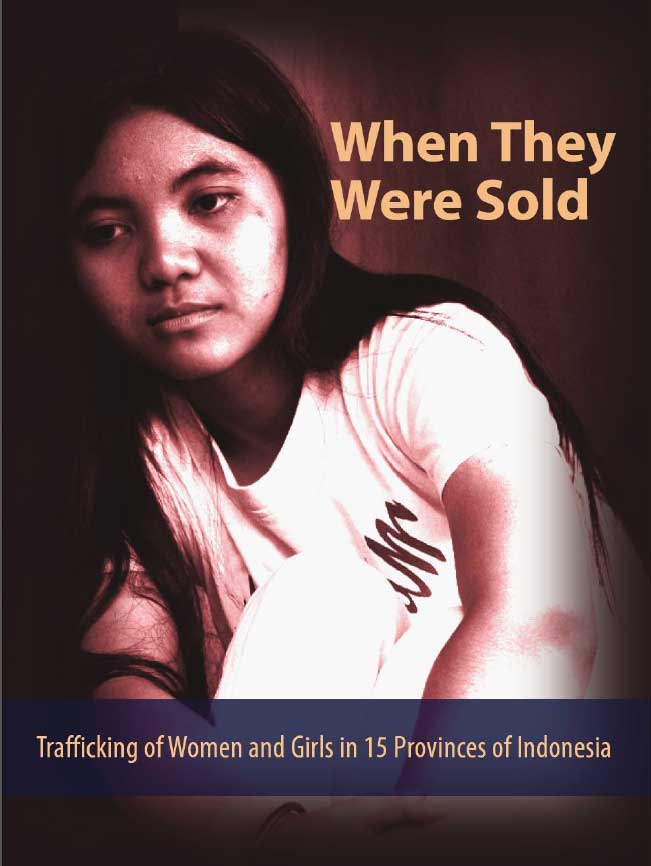
When They Were Sold: Trafficking of Women and Girls in 15 Provinces of Indonesia (2006)
The report looks at Indonesia's migrant worker system, which is under intense scrutiny over allegations of contributing to debt bondage and trafficking of migrant workers. It also examines efforts of government and non-government organizations to combat trafficking,...
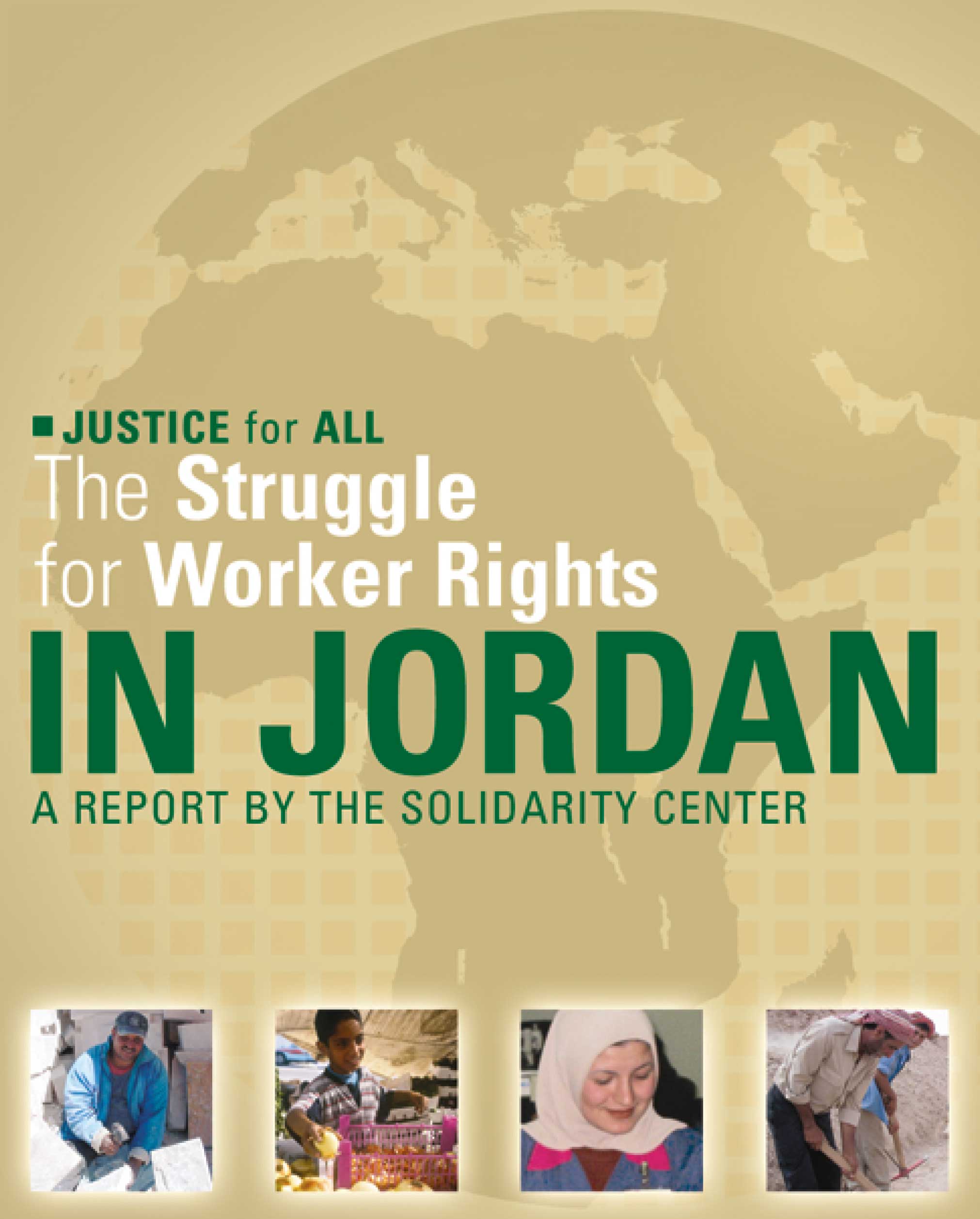
The Struggle for Worker Rights in Jordan (2005)
"The Struggle for Worker Rights in Jordan" lays out steps the Jordanian government, Jordanian unions, multinational enterprises and actors on the international stage can take to ensure respect for and enforcement of worker rights in Jordan. By following this path,...
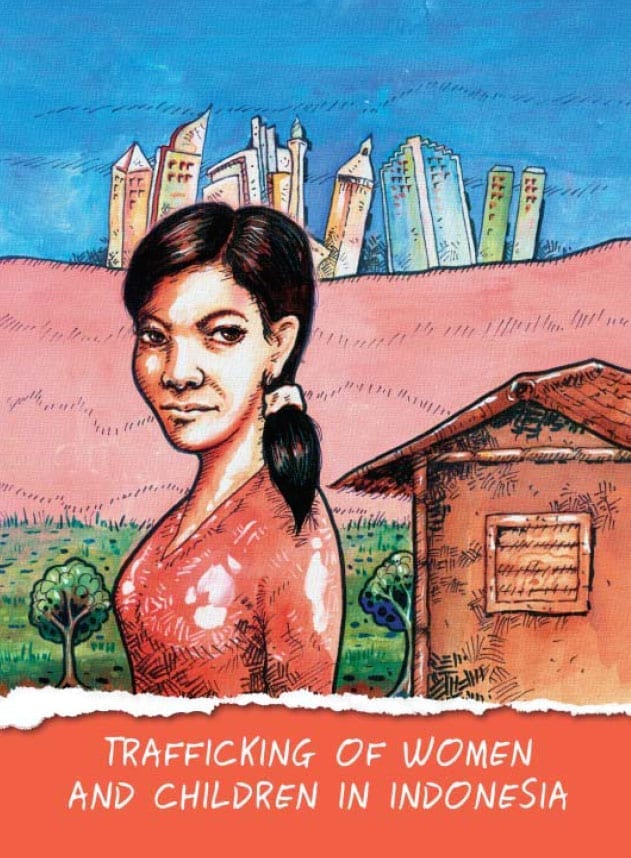
Trafficking of Women and Children in Indonesia (2003)
"Trafficking of Women and Children in Indonesia" examines the many forms of human labor trafficking, their causes and the demographics fueling the rise of women and children in forced and exploitative labor. Download here.
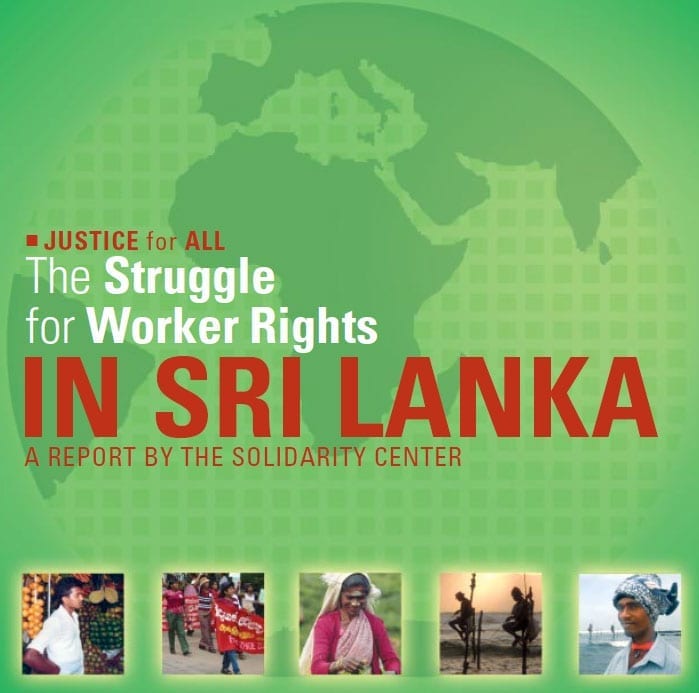
The Struggle for Worker Rights in Sri Lanka
In this second report of Solidarity Center's Justice for All series, worker rights researcher Lance Compa assesses how two decades of civil war affected democracy, economy and social justice in Sri Lanka. Compa compares Sri Lanka’s labor law and practice...

